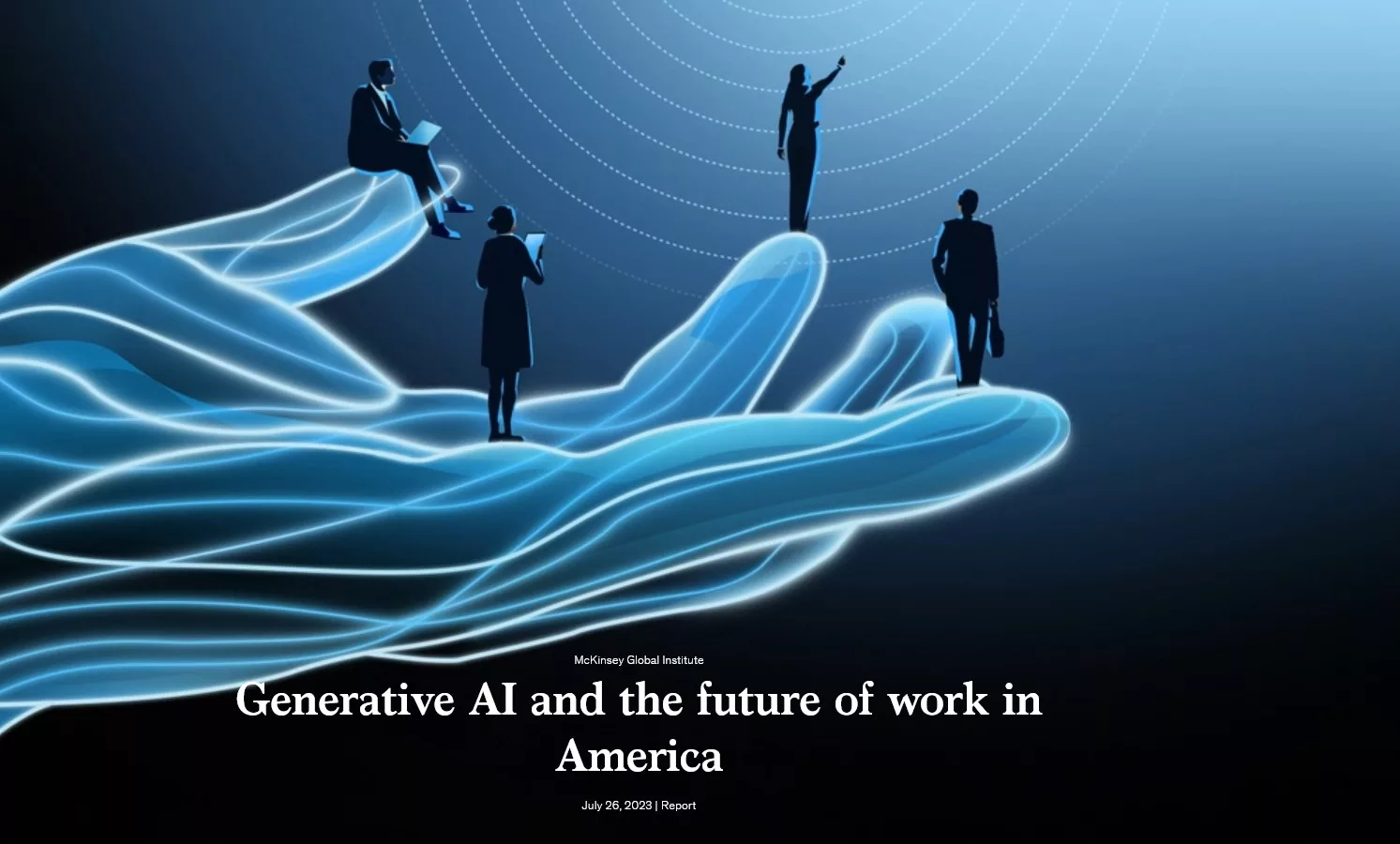As women dominate customer service and office support segments, which AI is more likely to replace, women are more likely to change occupation due to the generative AI boom.
A new study by the McKinsey Global Institute titled Generative AI and the future of work in America notes that women are “1.5 times more likely to need to move into new occupations than men.” Women share this higher-risk bracket with people of color and those with less education.
The reason for AI replacing more women than men is that women are heavily represented in job roles including office support and customer service—A segment that could shrink by about 3.7 million and 2 million respectively by 2030.
You can read the complete study on the official website.
Notably, occupations dominated by men such as business, legal, management, healthcare, transportation, and STEM are comparatively more AI-resistant.
Also, the study notes that people in the lower-wage groups are up to 14 times more likely to need to change their occupation to continue working relative to those who are in the highest-wage positions. With women being paid ~22% less than men (Economic Policy Institute’s State of Working America Wages Report, March 29, link), this further accentuates the problem.
Collectively, women will be more adversely affected by the proliferation of generative AI than men.
The fact that most heads of teams or companies working on generative AI tools are men and that the majority of people making policies for AI, AI safety, or the social repercussions of AI (including the new task force or the Big Tech’s talk with President Joe Biden) are also men, doesn’t help either.
While covering this report, Entrepreneur also notes that the McKinsey report isn’t the only one warning about this, citing Kenan Institute of Private Enterprise’s finding that 8 out of 10 women in the US workforce are highly exposed to generative AI automation vs. 6 out of 10 men.
The McKinsey study also notes another one that notes women in the US left the workforce in higher numbers than men during the COVID-19 pandemic and took longer to come back than men after the pandemic, with family obligations and childcare being the most prominent reasons for this.

